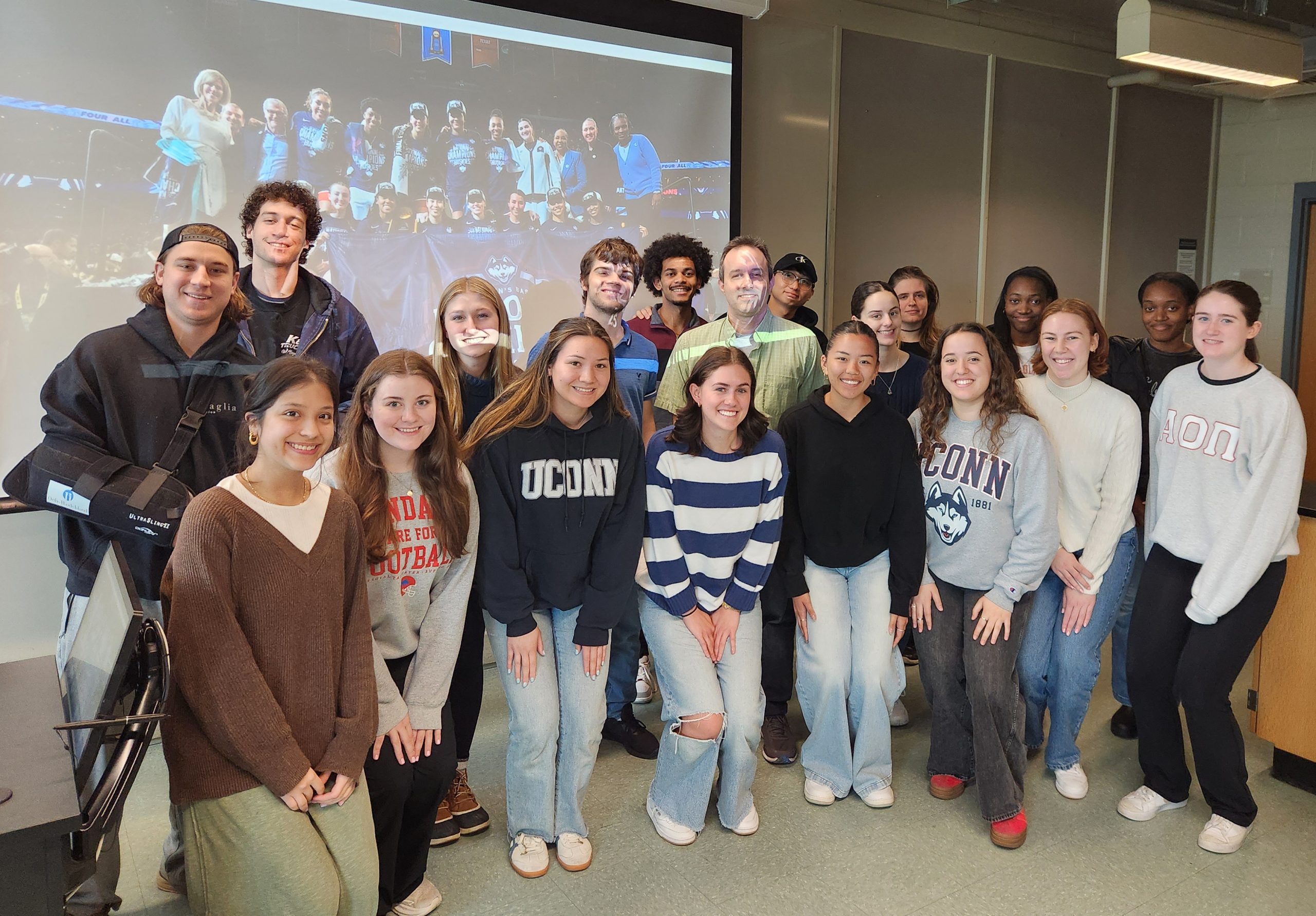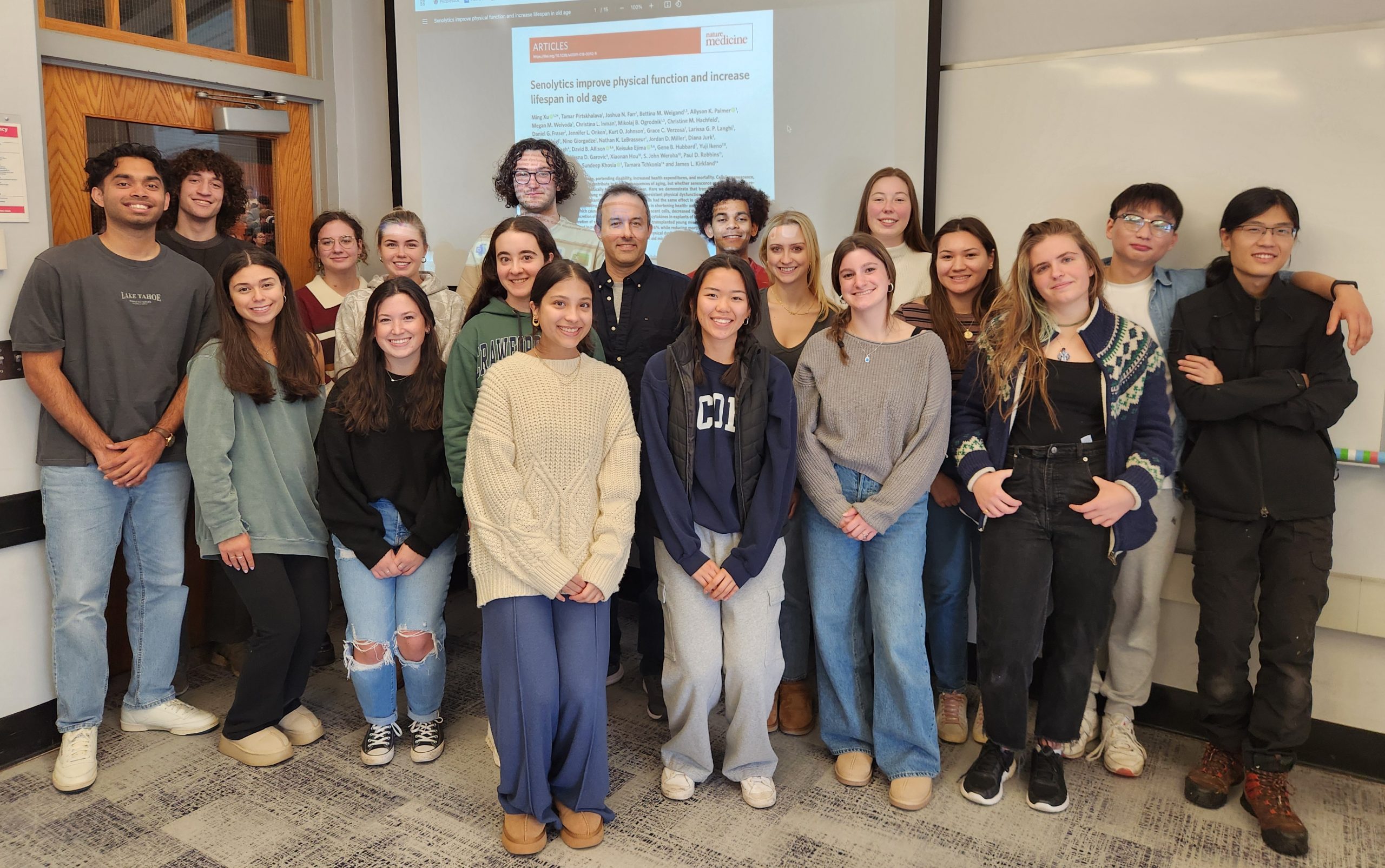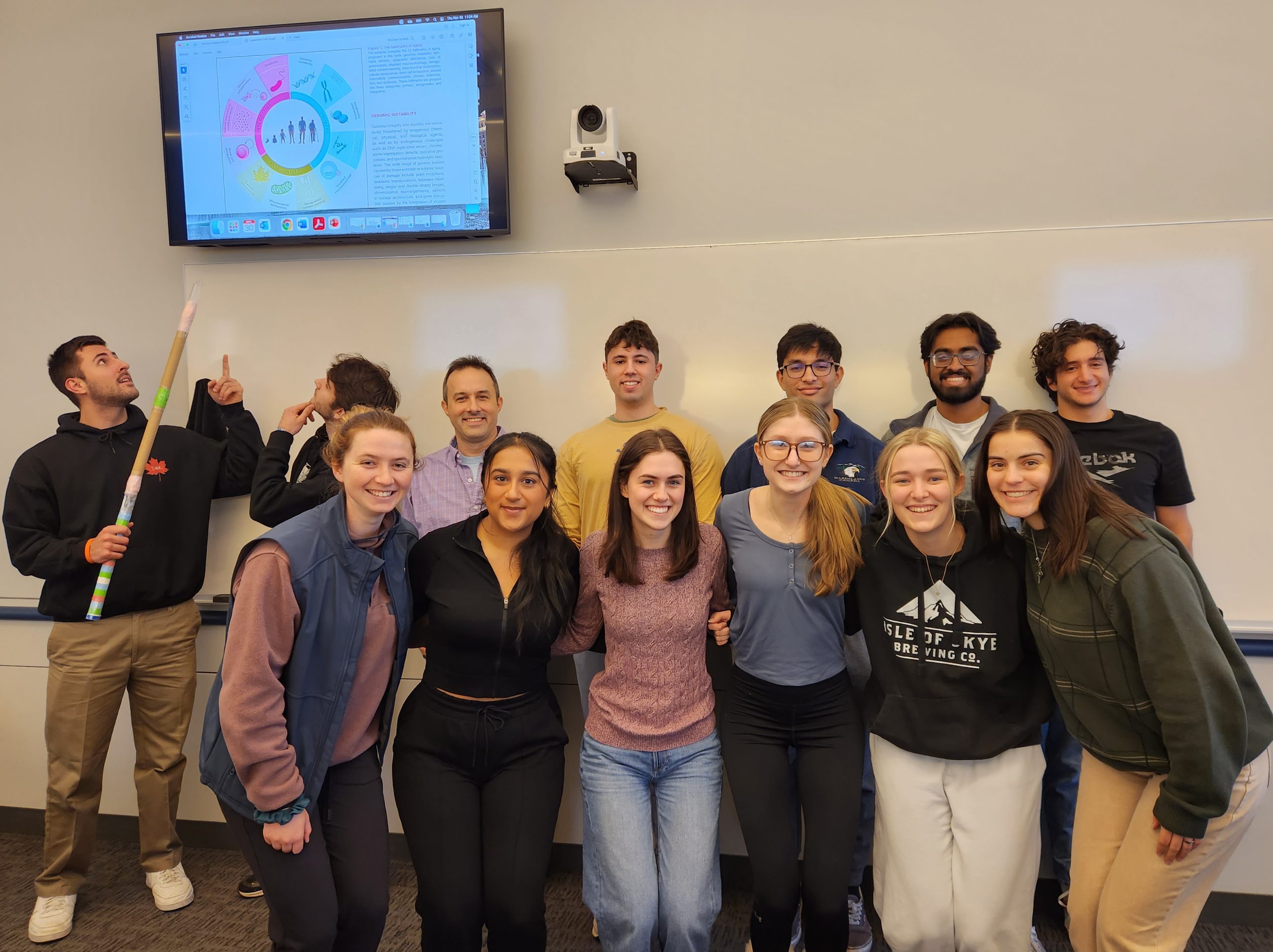Cell Biology & Genetics of Aging (MCB 3985; Fall). This literature-based graduate-style class teaches students about the hallmarks of aging, crosstalk among such biological mechanisms, core geroscience concepts, and modern research techniques.
Students should have completed Cell Biology (MCB 2210 or 2215) or Genetics (MCB 2400 or 2410) prior to requesting a permission number from Dr. Campellone.
Students are encouraged to enroll in the course in their sophomore or junior years, but may also enroll as seniors.
MCB 3895 Weekly Calendar, Fall 2025
MCB 3895 Weekly Calendar, Fall 2024
MCB 3985 Weekly Calendar, Fall 2023

Geroscientists, Fall 2025

Geroscientists, Spring 2025

Geroscientists, Fall 2024

Geroscientists, Fall 2023
Anti-Aging Therapeutics (MCB 3841W; Spring). This class incorporates vignettes from guest experts and guides students in reading and writing about modern behavioral, nutritional, and pharmacological strategies for promoting healthy aging. Writing is geared to both lay/public and scientific audiences.
This W course does not have prerequisites, but it is recommended that students have completed Cell Biology (MCB 2210 or 2215), Genetics (MCB 2400 or 2410), and/or Cell Biology & Genetics of Aging (MCB 3985) prior to requesting a permission number from Dr. Campellone.
Students are encouraged to enroll in the course in their sophomore or junior years, but may also enroll as seniors.
MCB 3841W Syllabus, Spring 2025
MCB 3841W Weekly Calendar, Spring 2025
MCB 3841W Syllabus, Spring 2024
MCB 3841W Weekly Calendar, Spring 2024
Several secondary Geroscience courses that are also part of the curriculum are at the 3000-, 4000-, and 5000-level:
Special Topics: Center on Aging Lab Meeting (MCB 3899),
Undergraduate Research (MCB 4896),
Senior Research Thesis (MCB 4897W),
MCB Invited Seminar (MCB 5984).
Contact Dr. Campellone for permission numbers.